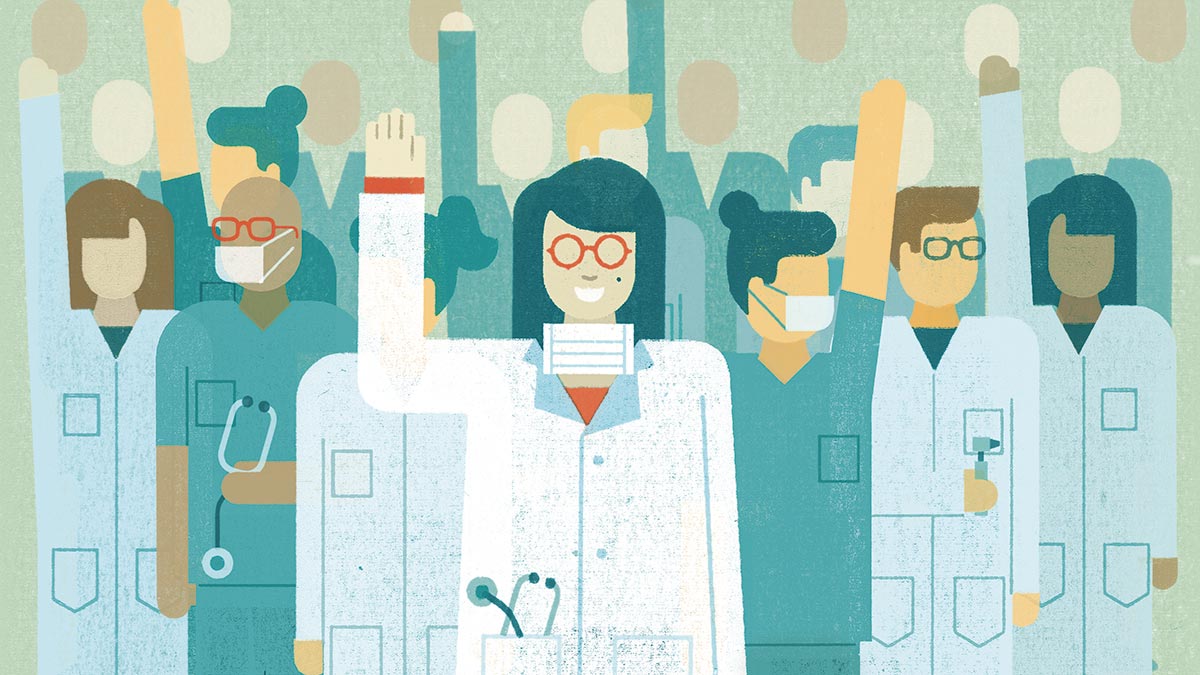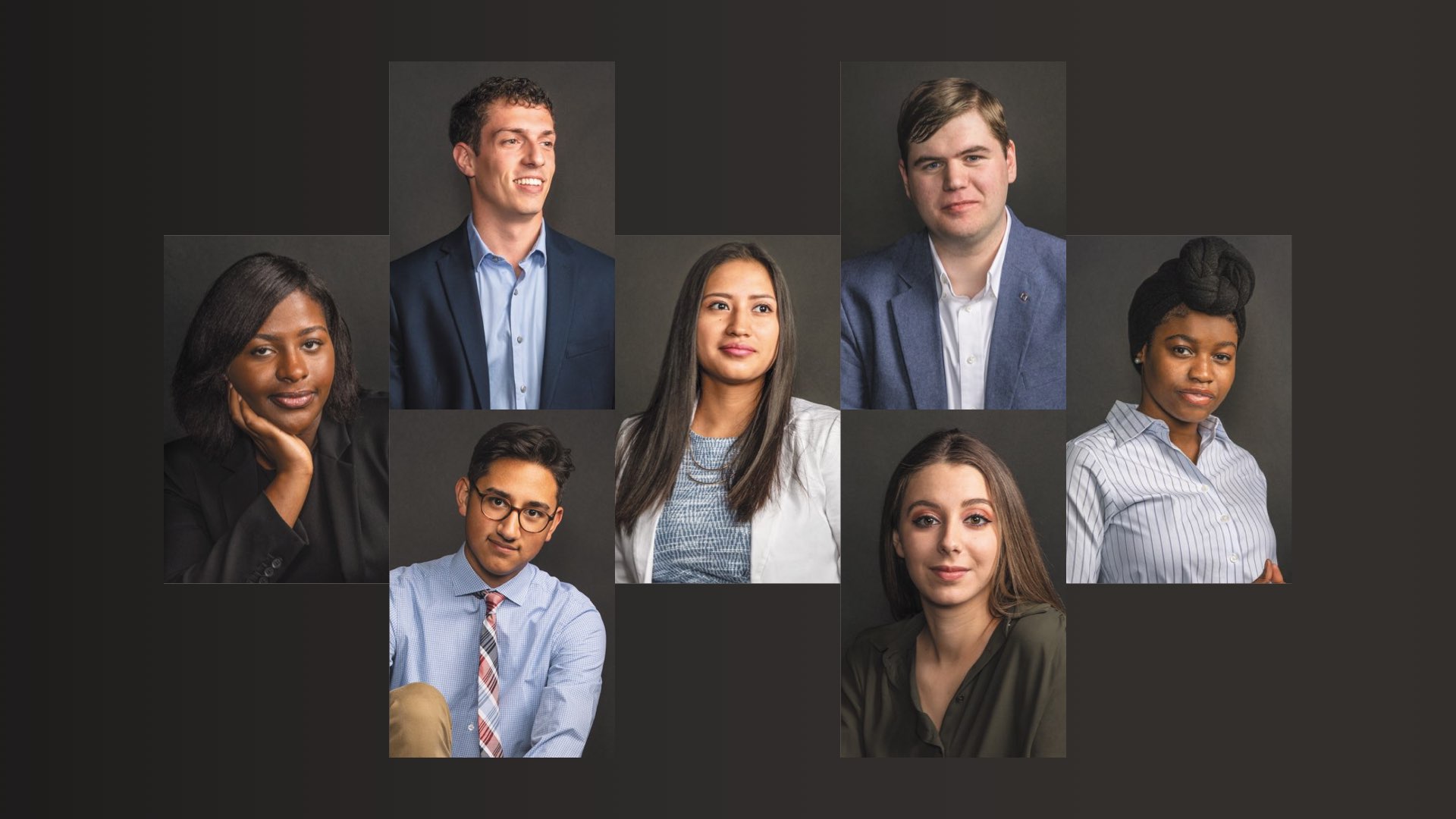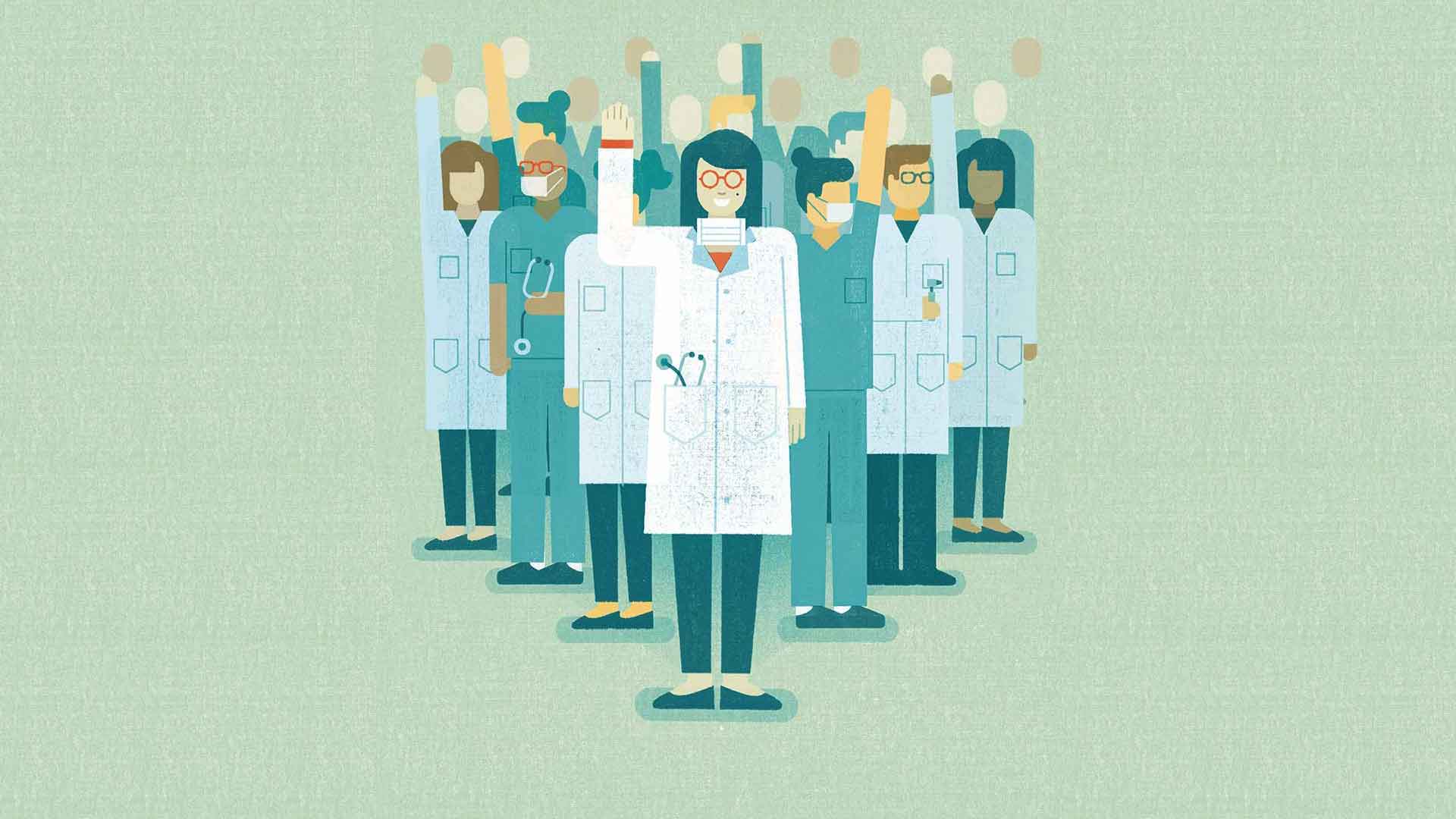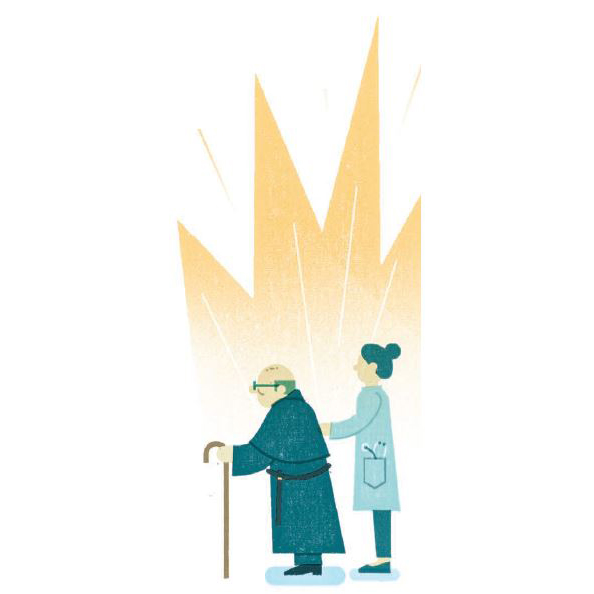In early January, we sleected this feature as our cover story. We wanted to highlight the innovative nursing leaders and programs in Villanova's M. Louise Fitzpatrick College of Nursing who make an impact at all levels of health care. As we prepared to publish this issue in early May, the COVID-19 virus had unleashed a pandemic across the globe that left no community unaffected. So much has changed. And yet what's at the heart of care for Villanova nurses has not changed.
In the pages that follow, we explore just a few of the many initiatives that exemplify how Villanova's faculty and students lead the way in nuring research, education and innovation. They devise real-time soluttions to improve health care access. They apply evidence-based findings through outreach programs and educational tools. They develop targeted, skilled interventions, and they care deeply about the patients and communities they serve.
Now more then ever, health care is a field that's in continual flux. But these very same skills, values and approaches to providing innovative and compassionate care always prove useful on the front lines, no matter what Vaillanova nurses are up against.
Partners in Prenatal Care
AREA OF FOCUS: women's health, children, prenatal care
Her own rich Puerto Rican heritage and expertise in obstetrics nursing inspired Linda Maldonado, PhD, RN, assistant professor of Nursing, to pursue and eye-opening exploration of health disparities. Puerto Rican women, she learned, have the highest rates of infant mortality of all US Latina subgroups and poor maternal outcomes.
To understand the "why" behind this phenomenon, Dr. Maldonado went to the source, interviewing 24 Puerto Rican women at a Temple University OB/GYN clinic to learn how they prioritize health needs and if their needs are being addresed at all. The women all reside in the Kensington neighborhood of Philadelphia, plagued by crime and an epicenter of the opioid crisis.
"I discovered women scrambling to care for their families, unable to prioritize their own needs while worrying if their children would be shot walking to school," Dr. Malsonado says. "There's a stunning lack of community support for them, as well as loneliness and social isolation."
Dr. Maldonado recruited Villanova Nursing students interested in research and community outreach and created Team Latina. The goal of the 15-member faculty/student research-and-action team is "to develop an intervention to increase urban, childbearing Puerto Rican women's timely initiation and attendance of prenatal care. But before we can suggest an intervention, we must understand the women's lives," she says. Currently, Dr. Maldonado and her research team are using narrative analysis methodology to analyze prior interviews with the women. This will assist Dr. Maldonado in telling the stories of these women's lives and laying the groundwork for progress in addressing their specific needs and concerns. The innaugural recipient of a Sigma Theta Tau-National Association of Hispanic Nurses grant, Dr. Maldonado has secured additional funding to continue building on the program.
Another grant, from Pennsylvania Action Coalition's Promise of Nursing Small Grants Program and Foundation of the National Student Nurses' Asociation, will fund implementation of complementary health therapies for women in a series of retreats, and stress-reduction and community-building skills instruction.
Conducting hands-on research into health disparities, and learning how to build trust within a community, has been a critical learning experience for students, Dr. Maldonado says, "Our students are non-judgmental and interact with the women without preceonceptions. They recognize that patients are not the problem; they are part of the solution. We're engaging them."

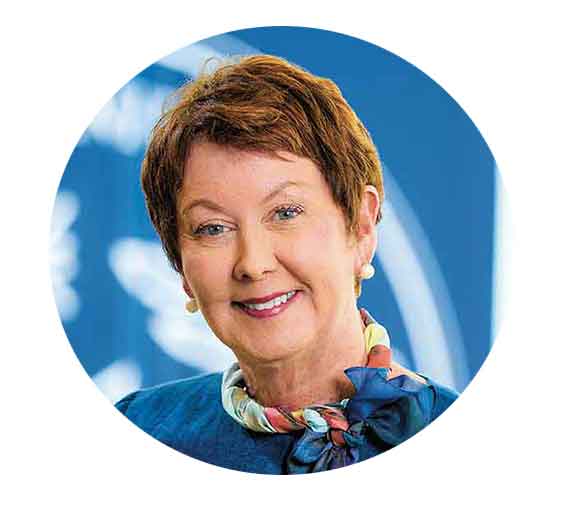
Innovators & Collaborators
Throughout her career as a practitioner, educator, leader and internationally recognized scholar, Donna Sullivan Havens, PhD, RN, FAAN, ’83 MSN, the Connelly Endowed Dean of the M. Louise Fitzpatrick College of Nursing, has been committed to improving the health of underserved populations in communities around the world. That commitment has only grown during her tenure at Villanova as she has supported the groundbreaking work of faculty, staff and students.
“Nurses are natural innovators and collaborators. We look at things holistically and constantly reassess and reinvent. The science generated by nurses opens the door for further innovations in service to the vulnerable and in the promotion of health. At the macro level, the work of nurses informs how the system works and the care that people receive. In short, nurses are the glue that holds the health care system together,” Dean Havens says.
“At the Fitzpatrick College of Nursing, we are proud to lead in many areas. The initiatives of our faculty and staff reflect our strategic plan where we are a restless, brave and brilliant voice for our profession and well as our patients and the communities we serve regionally, nationally and globally.”
